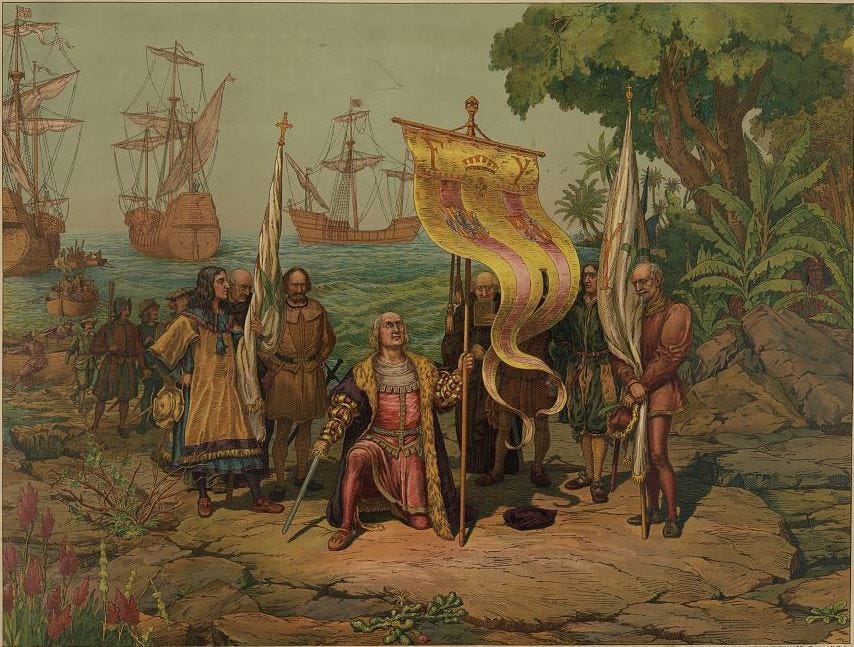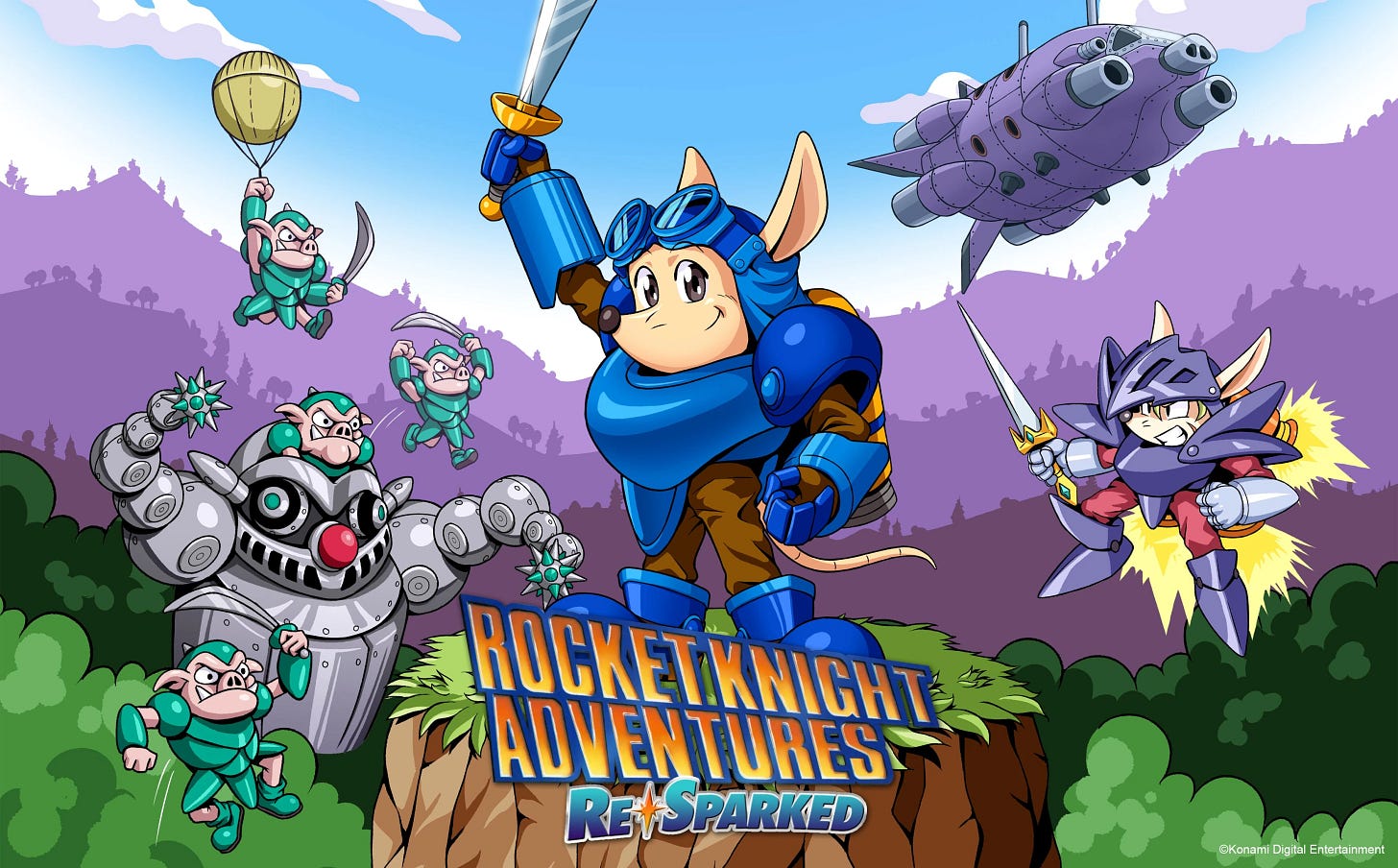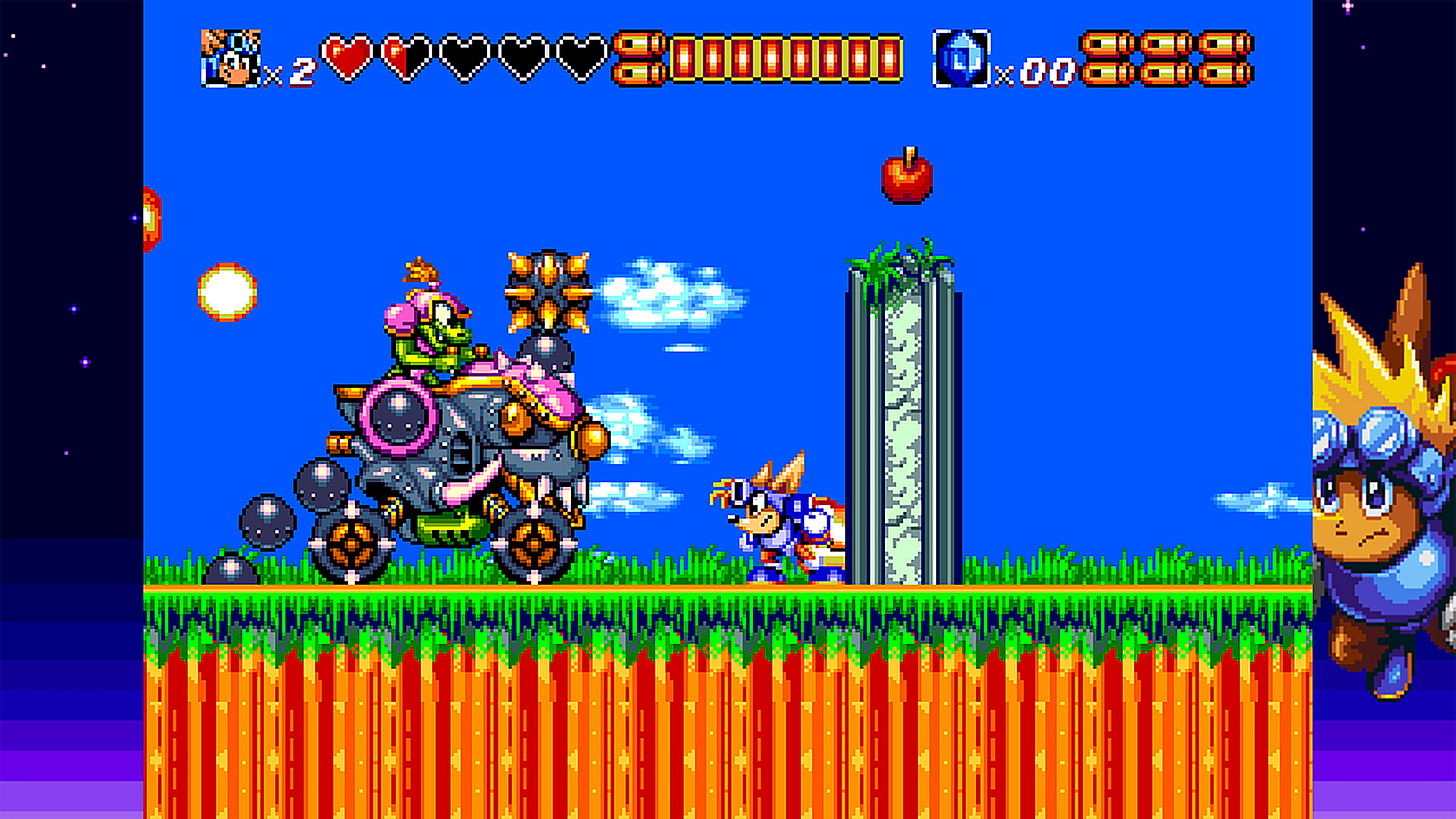Bonus Perspectives: Christopher Columbus Controversy, Japan Isn't Going Nuclear, "The Great Escaper," and "Rocket Knight Adventures: Re-Sparked"
The yearly controversy around Columbus Day, debates over Japan's relationship with nuclear weapons, and your weekly media recommendations.
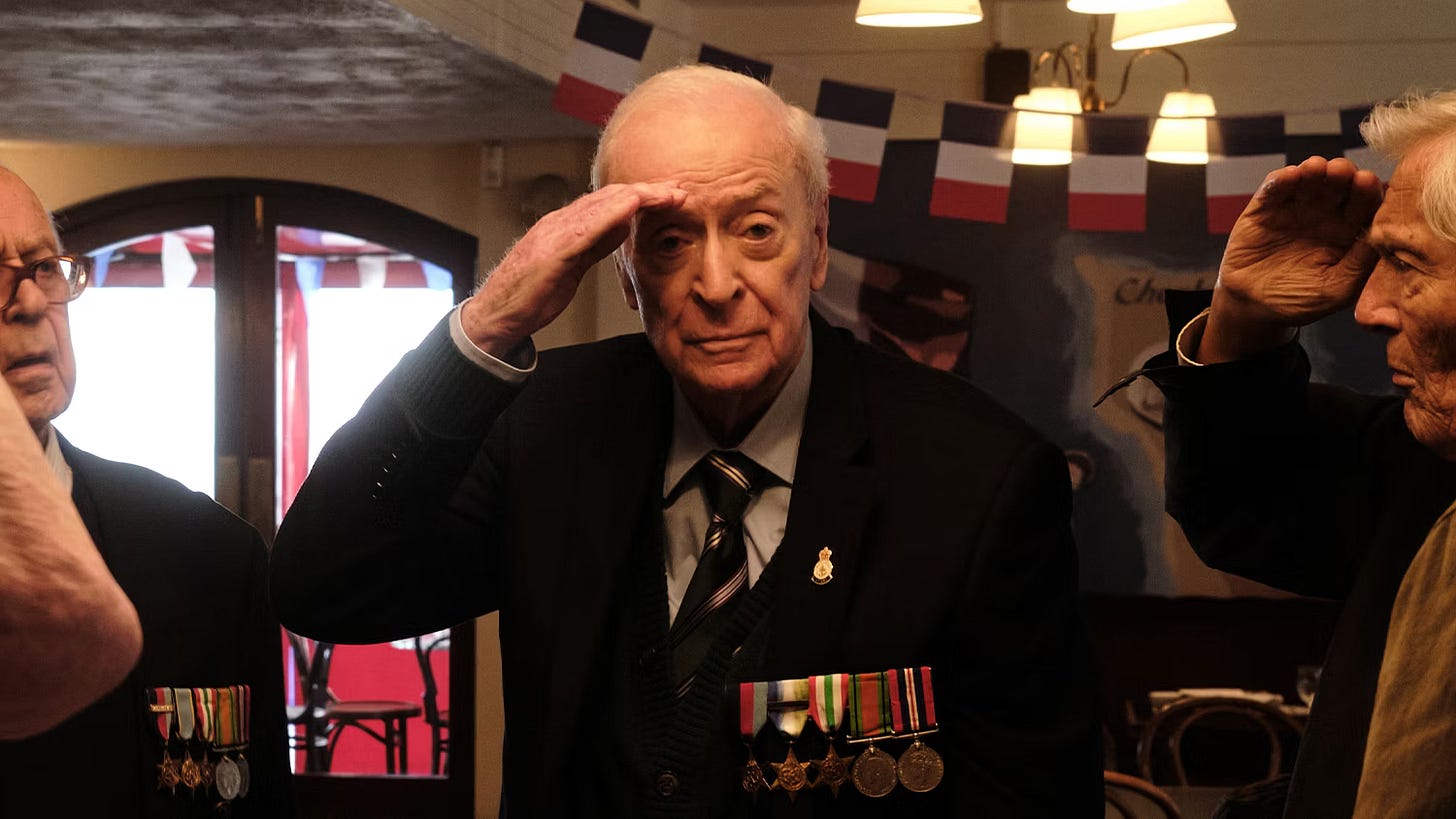
Bonus Perspectives is a weekly column series containing my thoughts on the latest international news and Japanese news, as well as film, television, music, book, and video game recommendations. It’s free for all subscribers to this Substack, but if you enjoy my writing, consider opting for a paid subscription. Doing so will give you access to exclusive in-depth pieces and my entire backlog of work. Your support is greatly appreciated!
Paid subscriptions are currently 20% off from now until the end of October.
The debate around Columbus Day
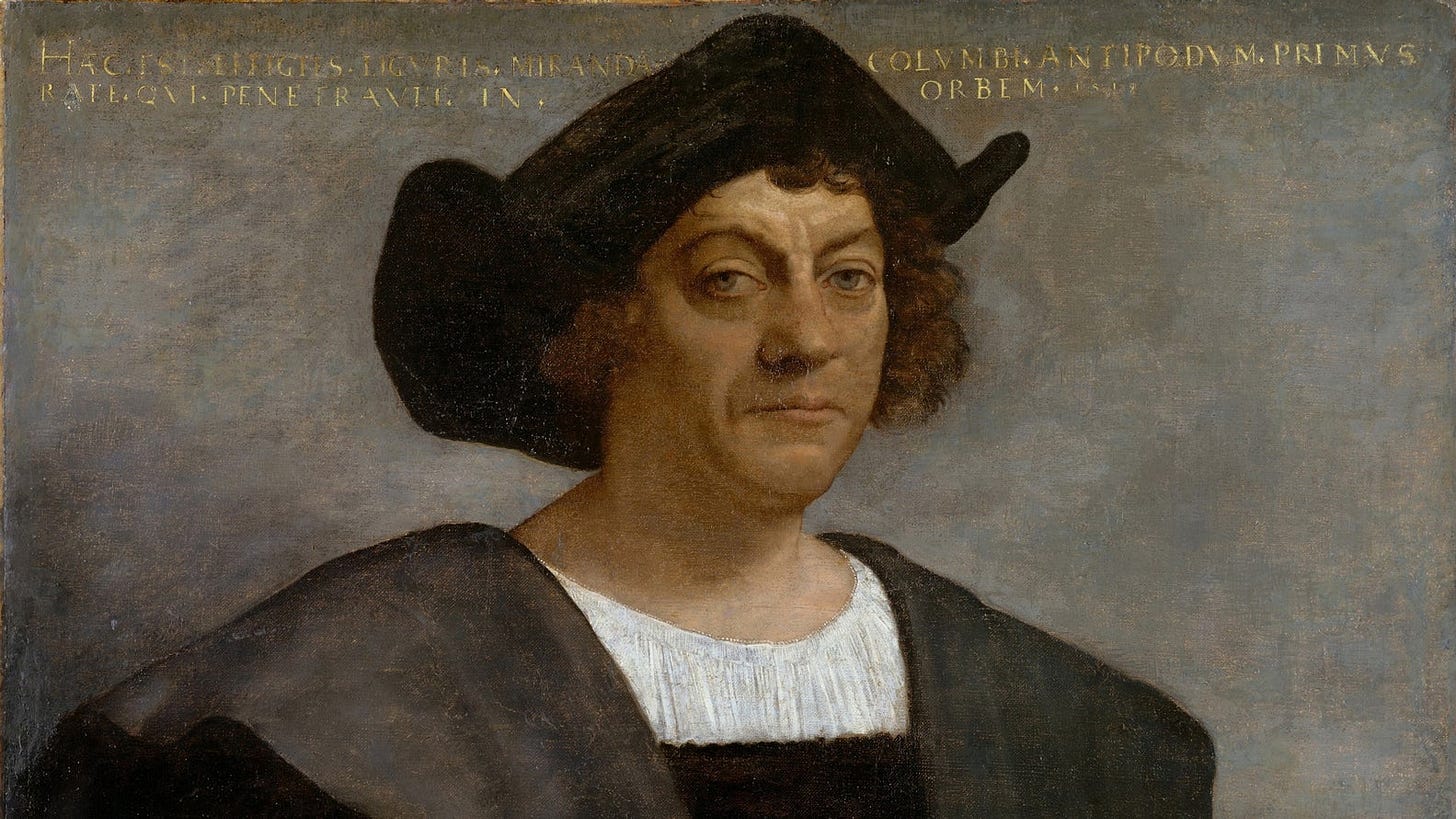
Another year, another Columbus Day. You know, that holiday that most Americans really couldn’t care less about, but they’re grateful for anyways because you might get a day off work or school depending on where you live. Being from Pennsylvania, I always had Columbus Day off. It also occasionally falls on my birthday, October 14, which happened to be the case this year. I’m now in the twilight of my twenties at age 27, slowly creeping toward *shudders* my thirties. But enough about me and my inevitable mortality.
I’m here this week to talk about Columbus Day and Christopher Columbus. Mostly because there’s not much going on in the U.S. apart from election buzz I have little interest in writing about, but also because I’ve always wanted to cover this topic in some form. In recent years, Columbus Day has become the center of heated controversy and yet another part of the tiresome culture wars that are tearing America apart. Many states are having fierce debates on whether or not the holiday should continue or be replaced in light of renewed disputes over the complex legacy of Christopher Columbus himself.

First, it should be obviously stated that Columbus did not “discover” the Americas, as there is evidence that other Europeans like Leif Erikson set foot on the continent of North America long before him. It also seems to be somewhat of a common misconception among the average American that Columbus arrived in what is now the United States, but his expedition hit the shores of the Bahamas, Cuba, Haiti, and the Dominican Republic. Still, it cannot be overstated how important his voyages were. Many of Columbus’ critics often make the case that because he wasn’t the first, that somehow takes away from his achievements, but I always found this to be a weak argument.
Columbus’ unwavering drive to find a western sea passage to Asia was vital in developing European understanding of the rest of the world. He certainly made costly mistakes along the way, but for someone largely self-taught and from an impoverished upbringing in 15th century Genoa, being able to get to the Western hemisphere with his rudimentary navigation skills would have certainly been an impressive feat for the era. If you subscribe to the great man theory of history, as I tend to, then Columbus easily fits the bill alongside the likes of Napoleon and Alexander the Great.

Like most great men, however, Columbus both directly and indirectly left a trail of bodies in his wake. While he was one of the major figures who paved the way for European exploration of the Western hemisphere, a negative consequence of this was irreversible demographic change of the native populations of the Americas. Most notable was the destruction of the Taíno people in the West Indies, which some scholars argue was a deliberate genocide carried out by the Spanish. It’s hard to determine the exact number of natives killed since statistics from that era are hardly well-documented. The Wikipedia article for “Taíno genocide” states that their population was estimated at “between 10,000 and 1,000,000” before 1492, which is of little useful help.
The exchange of goods and people from Europe, however, indisputably brought diseases to the Americas that the native populations had no immunity to, which was the biggest contributor to their declining numbers. It should be remembered though that no one back then had any concept of germ theory, and the writings of Columbus suggest that he did not arrive with the intention of wiping them out. Columbus himself had complex views toward natives like the Taíno, acknowledging their positive traits and achievements within their respective societies, but like most Europeans of his day, viewed them as suitable for slave labor and had no qualms in forcibly abducting them for this purpose.
At the same time, without Christopher Columbus we would not have the beginnings of what we call modern Western civilization. It was inevitable that Europeans were eventually going to leave their shores for distant lands given the rapid advancements in technology and navigation. The globalized world we have now is the result of Europeans who took risky sea voyages to find passages to Asia and the Americas. To say that they only brought death and destruction while having no redeeming achievements is simply nonsensical.
Viewing Columbus’ life in a vacuum is also missing the forest for the trees. Universal human rights and respect for the territorial sovereignty of others are very much 20th century inventions. Before that, the vast majority of human history was one of brutal conquest and immense bloodshed that’s very difficult for people of today to comprehend. Columbus wasn’t even the most brutal of contemporary Spanish conquistadors — the atrocities of some like Hernán Cortés make him look like a saint in comparison.
Columbus himself was not novel in his use of slavery either. Indigenous populations across the Americas regularly massacred rival tribes and enslaved their survivors after wars. Some willingly worked with colonizers out of pragmatism to gain an advantage over their territorial enemies in later centuries. This does not excuse the viciousness of European conquerors, which was often orders of magnitude larger due to the technological means at their disposal, but the idea that everything was an idyllic paradise in a pre-Columbus world is pure fantasy.
At the end of the day, one has to ask the question if it was a good thing that Western civilization ultimately happened as a result of the Age of Exploration. Is it a good thing that the United States exists as a country despite its problematic history like that of virtually every major nation on earth? Most, I believe, would be inclined to answer in the affirmative. Those who answer in the negative are almost always vindictive leftists or communists that already hate everything the U.S. stands for and in general are hypocritically selective in what human rights violations they’re willing to condemn.
As to whether or not Columbus Day itself should continue, I believe that choice is best left in the hands of the American people. The holiday got started because Italian-Americans and Catholics wanted a tradition to be proud of at a time when discrimination against both groups was still prominent throughout the United States. The Sopranos even humorously touched upon the debate, which was a greater commentary on how most Americans’ perceive Christopher Columbus less for what he actually did and more around what they seem to think he represents, good or bad.
There are talks every year of replacing Columbus Day with Indigenous Peoples’ Day, which is already observed in some states, but I think this is just more fuel for pointless culture wars between two sides talking past each other. I don’t see why both holidays can’t co-exist side-by-side where we acknowledge the importance of Western civilization and the unique cultures of America’s many indigenous groups, but I’ve long given up trying to implore people to calm down. For those actually interested in learning more about the nuances of Christopher Columbus’ life and the era he lived in, I recommend watching this conversation my Spectator colleague Douglas Murray had with historian Felipe Fernández-Armesto last year.
PM Ishiba wants nukes, but the Japanese public doesn’t
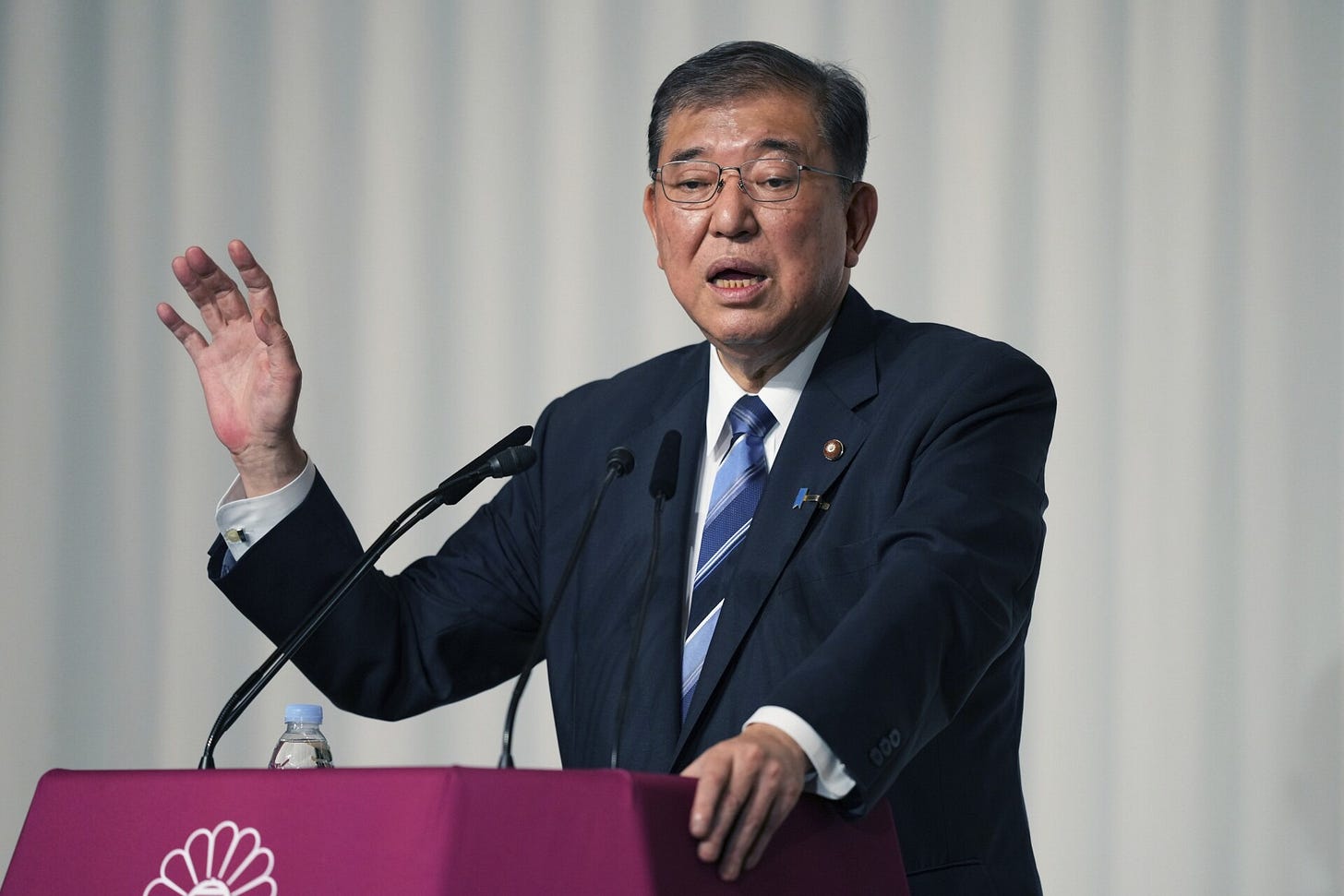
This year’s Nobel Peace Prize went to Nihon Hidankyo, a Japanese group which represents survivors of atomic bomb survivors from Hiroshima and Nagasaki. In their statement on Oct. 11, the Norwegian Nobel Committee stressed the organization’s efforts to “achieve a world free of nuclear weapons and for demonstrating through witness testimony that nuclear weapons must never be used again.”
While I’ve always been skeptical of Nobel Peace Prizes since they’ve gone to everyone from Yasser Arafat to Henry Kissinger, anti-nuclear weapons activism is pretty standard stuff that most would agree is befitting of a lofty goal like “peace,” whatever that’s supposed to mean. The problem is that Japan’s new prime minister is currently talking out of both sides of his mouth when it comes to his country’s future relationship with nuclear weapons.
Days after the Nobel Peace Prize announcement, Prime Minister Shigeru Ishiba once again stated the need for nuclear deterrence, noting in an NHK television program that “Japan is surrounded by nuclear powers.” At the same time, Ishiba also reaffirmed that his “desire to eliminate nuclear weapons has not changed at all.” So which is it? I touched upon this topic briefly last week, but Ishiba has previously said that Japan should consider nuclear weapons sharing with the U.S. to bolster national defense. It seems to me that amid his ambitious policy proposals like an Asian version of NATO, which don’t seem likely to happen, Japan’s new PM is trying to have his cake and eat it too.
While nuclear weapons are obviously awful tools of destruction that should never be used, world powers have long acknowledged that they aren’t going away. Nuclear deterrence is an integral part of NATO’s existence, and I’m inclined to believe that they can paradoxically prevent wars from happening since no country is serious about actually employing them in battle. Ishiba being someone well-versed in military affairs is likely fully aware of this, which is why he’s proposing nuclear sharing with the United States. Saying that you support a nuclear-free world given the geopolitical realities of the 21st century is like saying you support a war-free world. It’s a nice sound bite for the press, but no politician seriously believes it as realistic.
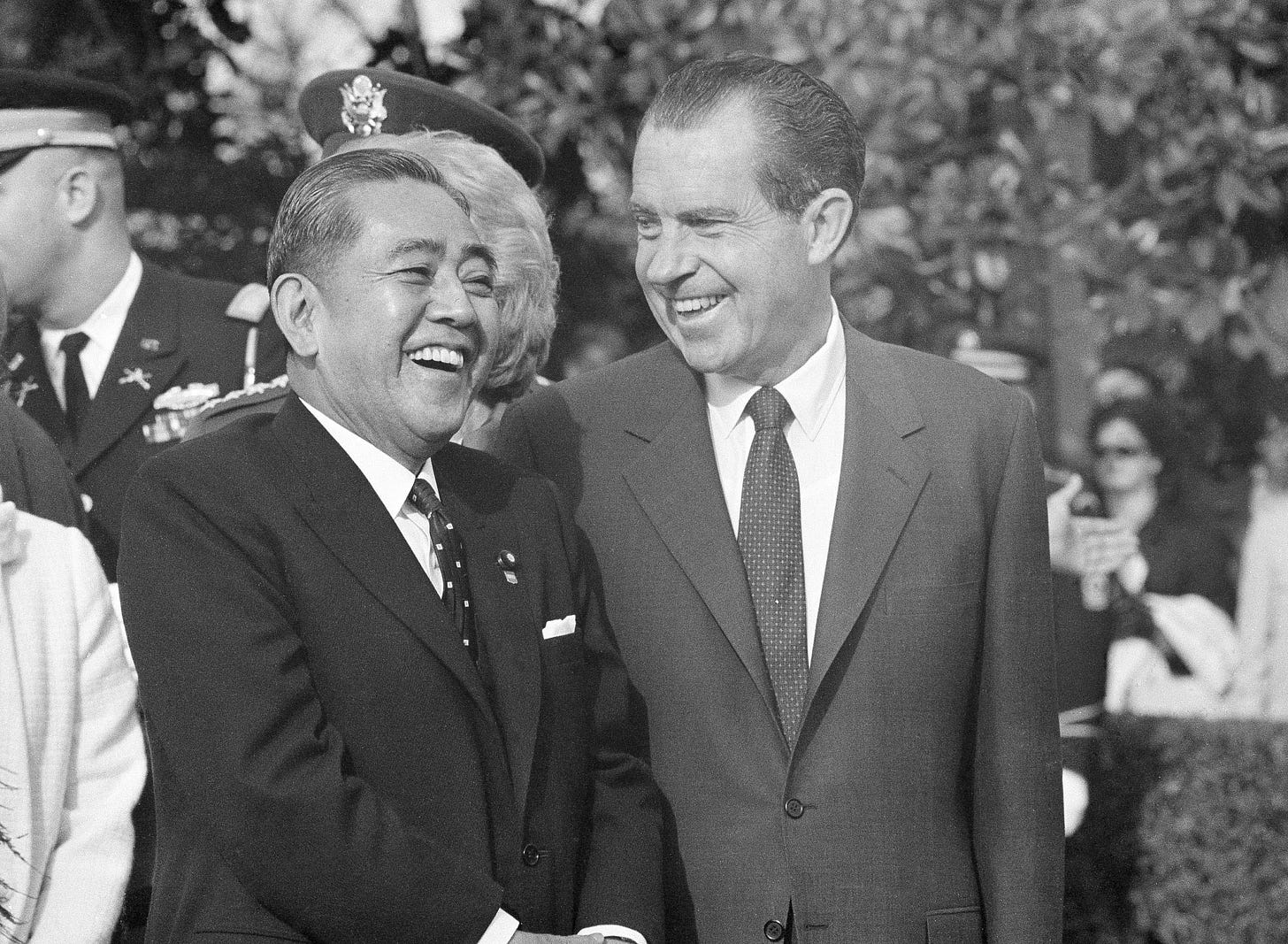
Unfortunately for Ishiba, it’s unlikely his nuclear ambitions will ever happen. His predecessor Fumio Kishida was strongly opposed to nuclear sharing with the United States, correctly stating that the introduction of such weapons into the region would be a violation of Japan’s Three Non-Nuclear Principles. This is the stance held both by the ruling Liberal Democratic Party establishment and by most in Washington, as the U.S. has long been opposed to Japan getting its own nukes.
The Japanese public doesn’t want nuclear weapons either — polling has consistently shown that opposition to them is high. Debates over the use of nuclear energy are already contentious given the 3/11 Fukushima disaster and its aftermath over a decade later. It’s safe to say that Japan going nuclear will remain a pipe dream for a long time. The best that Ishiba can hope for is continued strong relations with the United States, which is already an effective bulwark against external threats. And as I’ve stated already in previous analysis, Ishiba needs to first prove he can be a competent leader who will remain in office for years to come before even considering more radical policies.
What I’m watching — “The Great Escaper” is Michael Caine’s swan song
Most have caught on from my recent columns and social media posts that I’m on a Michael Caine fix lately, so I won’t repeat what I’ve already said about my favorite English actor. See last week’s edition of Bonus Perspectives for why you should check out his early filmography. This week, however, we’re jumping forward to what appears to be the last film Sir Michael intends to star in, The Great Escaper.
Based on the true story of a 90-year-old British Royal Navy veteran who left his nursing home in 2014 to attend the 70th anniversary D-Day landing celebrations in France, The Great Escaper is a surprisingly poignant old-fashioned tearjerker. Along with being Caine’s final work before his announced retirement, it also ended up being the last for co-star Glenda Jackson, who passed away a few months before the film’s release in its home country late last year. The Great Escaper just received a limited theatrical release across Japan, and I caught it at my local independent cinema on my birthday earlier this week. Probably one of the best birthday gifts I could’ve asked for as a Michael Caine fan.
The Great Escaper comes out at a time when World War II veterans are rapidly declining in number. The film takes place in 2014 when there was already discussion around how few D-Day veterans were alive for the event’s 70th anniversary, and most were too elderly to make the voyage back. This year was the 80th anniversary of D-Day, with the youngest surviving participants being in their late 90s. One American veteran even passed away en route to the celebrations at the age of 102.
At 91, Michael Caine would have been too young to participate in World War II, but his splendid memoir The Elephant to Hollywood vividly describes his experiences evacuating London during The Blitz and fighting in the Korean War a generation later. While filming, he was the same age that the real Bernard Jordan was when the nonagenarian D-Day veteran made his daring “great escape” back to Normandy.

All of this makes The Great Escaper a fitting end to Michael Caine’s long career, but what really sold me on the film was how much it said with very little. This is a story about very elderly people who are in their final years. It’s a race against time for them to make peace with their inner demons and find some form of closure. There’s a scene toward the end when Bernard Jordan is at a table with German soldiers who also participated in D-Day. There is no animosity between any of the men, only the mutual understanding that they were all lucky to survive the same harrowing experience. Few words are spoken, but the pained expressions on Caine and his aged co-stars John Standing and Wolf Kahler’s faces are among the film’s most convincing moments. I was sadly reminded that this stoic generation will soon no longer be with us.
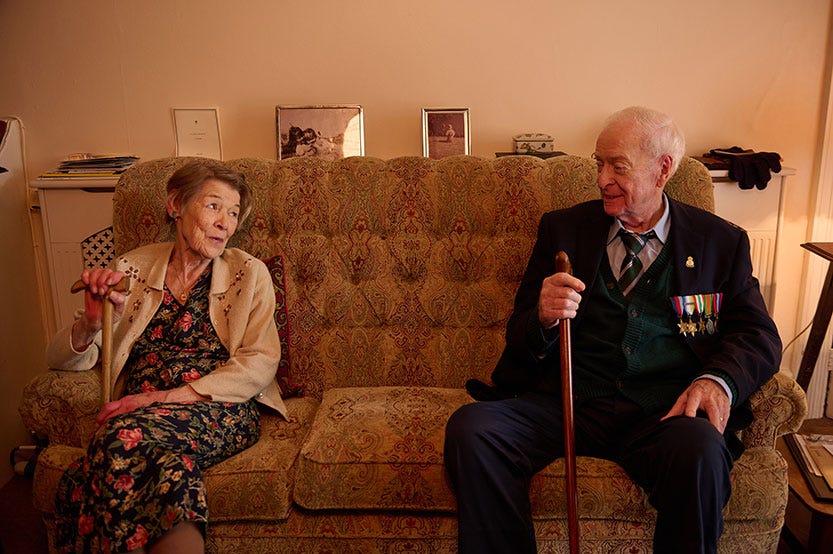
The other central aspect of The Great Escaper is the chemistry between Michael Caine and Glenda Jackson, this being their first film together since The Romantic Englishwoman in 1975. Since both actors were the same ages as the characters they played, you completely believe that this is a couple that has spent 70 years together. Anyone who has taken care of grandparents or other elderly people will resonate with how The Great Escaper depicts the unglamorous side of aging. Call me a sentimental fool, but it was hard not to shed a tear seeing Caine and Jackson together. The film is just as much a statement on their twilight years too.
I consider myself lucky to be among the last generation of young people who will have conscious memories of World War II veterans. When the day eventually comes of them no longer being with us, films like The Great Escaper will be an important part of how we remember their contributions and sacrifices. Watch it with your grandparents if you’re fortunate enough to still have them around.
What I’m playing — “Rocket Knight Adventures: Re-Sparked” is a retro game re-release done right
It’s been getting harder for me to find the time to play video games these days, but that doesn’t mean I’m not trying. I still have Dragon Quest IV to get through which I wrote about quite awhile ago, but other than that most of what I’ve been playing has been smaller and shorter games. I also have a few things on pre-order that are finally arriving, one of the most notable of which was Rocket Knight Adventures: Re-Sparked for Nintendo Switch.
This is a brand new collection of the Rocket Knight trilogy, one of the more famous series associated with the Sega Mega Drive, or Sega Genesis in North America. The third game was actually released on Super Famicom (SNES overseas), but most consider possum knight protagonist Sparkster to be primarily a Konami character who had his best days during the Sega craze.
It’s a wonder that Sparkster never got anywhere close to the same level as someone like Sonic the Hedgehog, being unfortunately forgotten with most of the anthropomorphic animal video game mascots of the 1990s. Gamers who grew up on Sega probably have some memories of him, but apart from a few scattered cameos and a reboot in 2010 that few played, modern audiences have practically no resonance with Rocket Knight. This to me is one of those retro game compilations that has every right to exist, being an accessible re-release of vintage titles which normally fetch high prices on auction sites, but also a way for new audiences like the present author to experience them.
Rocket Knight Adventures: Re-Sparked is available on PlayStation 4, PlayStation 5, Nintendo Switch, and Steam, with the physical release being handled by boutique label Limited Run Games. I’ve previously written about my dissatisfaction with Limited Run, but this is one of their products that there was really no choice in getting. As of this writing, the collection isn’t even available on the Japanese eShop yet. I’m sure that will happen eventually, but it was either this or no physical release at all. All the more reason why there needs to be more competition in this niche space, but I digress.
To give credit where it’s due, I think Limited Run did a good job with their “classic” edition package of this collection. Stylized like a Mega Drive game clamshell case, you get a good amount of physical extras that actually don’t suck. This includes a large double-sided poster, a steelbook game case, a full color comic book, and the trilogy’s complete soundtrack. No complaints from me here. I think all of this is worth the roughly $65 asking price, and that’s frankly a steal compared to how much just the loose cartridges for these games go for individually both in Japan and overseas.

As for the games themselves, playing them for the first time is truly like rediscovering some hidden classic that always eluded you. While Rocket Knight might not be as obscure as something like Sunsoft’s Gimmick or Taito’s Little Samson, I guarantee that this is going to be the first time most people will be experiencing this series. If you’re familiar with more modern platformers like Cuphead and Shovel Knight, I think you’ll feel right at home here with their eclectic gameplay and focus on constant movement. Sparkster can use close range attacks, but his jetpack-boosted dash moves really sets these titles apart from other side-scrollers of their era. It still feels modern and fresh even today.
I’ve only scratched the surface of this trilogy, but I agree with the general consensus that the first game is the best with its more arcadey presentation. Still, Sparkster: Rocket Knight Adventures 2 and Sparkster (the third entry which is essentially a spin-off) are no slouches either. While their pacing isn’t as tight, these are still very enjoyable platformers that make you wonder where this franchise could have gone if it was given more entries. Could Sparkster have possibly become another Sonic or Crash Bandicoot? It’s a shame we’ll never know.
The collection features your standard bells and whistles such as save states and rewinding, while you can also customize the background wallpapers and add a CRT filter. The real treat is seeing all the concept artwork and being able to listen to Michiru Yamane’s excellent music. She would go on to become best known for the Castlevania series, a reminder that there was once a time when Konami was symbolic of quality. Let’s hope that this release allows Sparkster to shine again properly one day.
Foreign Perspectives is a reader-supported Substack. If you like my work and have come this far as a new reader or free subscriber, consider opting for a paid subscription so I can continue writing in-depth articles such as these on a regular basis. Your support is greatly appreciated!
Paid subscriptions are currently 20% off from now until the end of October.


